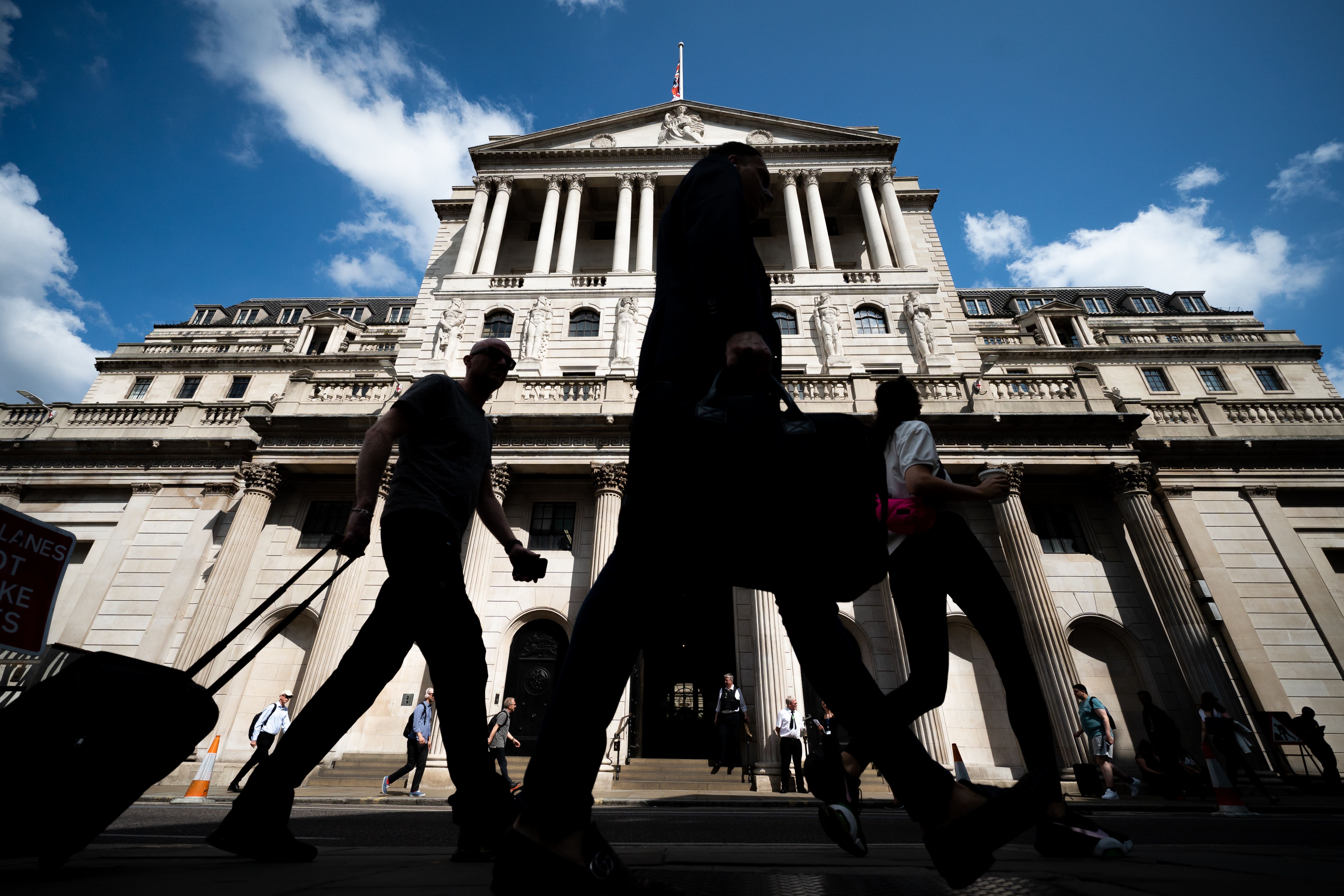Why have interest rates stayed the same and when will they go down?
The PA news agency looks at what the latest Bank of England decision means and whether rates could be cut again soon.

The Bank of England has said interest rates could come down “gradually over time” after deciding to keep them unchanged at 5% on Thursday.
Economists think the next cut to borrowing costs could come when policymakers next meet in November.
Here the PA news agency looks at what the decision means and whether rates could be cut again soon.
– What happened to interest rates on Thursday?
The Bank of England’s Monetary Policy Committee (MPC) kept the base interest rate unchanged at 5%.
Eight of the nine members on the MPC voted to keep rates the same, with one member preferring to cut them to 4.75%.
Last month, the central bank reduced rates from 5.25% – a milestone moment as it represented the first time they had been cut since 2020.
Andrew Bailey, the Bank’s governor, said on Thursday: “The economy has been evolving broadly as we expected.
“If that continues, we should be able to reduce rates gradually over time.”
– What does it actually mean?
The base rate influences the price that banks charge customers for mortgages and loans.
It is used as a tool to control inflation across the UK.
Hikes in recent years have left mortgage rates much higher than was normal for most of the last decade.
However, mortgage rates have been edging down in recent weeks after the Bank kickstarted an expected cycle of interest rates cuts.
Sam Richardson, deputy editor of consumer platform Which? Money, said: “The Bank’s decision to hold rates where they are won’t come as a surprise, but will nevertheless still be a disappointment to homeowners coming towards the end of their fixed-term deal who would have been hoping for downward movement in the market.”
He said that while the latest decision means costs are “unlikely to rise beyond the current levels, the pace of rate cuts is now likely to slow down”.
It is fair to expect that the Bank of England will be able to keep cutting rates over the course of the next 12 to 18 months, but at a gradual and modest pace
– Are prices still going up?
Yes, but at a rate that the Bank of England is much more comfortable with.
Consumer Prices Index (CPI) inflation hit 2% in May and June this year, the Bank’s target level, before edging up to 2.2% in July and August, according to official figures.
However, the MPC stressed that it needed to be sure that anything putting pressure on inflation was “squeezed out of the system” entirely.
Mr Bailey said it is “vital that inflation stays low”.
– When will interest rates come down again?
Some economists think that the Bank of England signalled in its messaging on Thursday that it could be in a position to cut interest rates again when the MPC next meets in November.
This is because new economic data could give it more confidence that inflation is continuing to go in the right direction.
Janet Mui, head of market analysis at RBC Brewin Dolphin, said: “It is fair to expect that the Bank of England will be able to keep cutting rates over the course of the next 12 to 18 months, but at a gradual and modest pace.”
“The next cut is largely expected to be November,” she said, but stressed that the Bank’s decision-making will be dependent on the latest economic data.
Andrew Goodwin, chief UK economist for Oxford Economics, said another rate cut in November was “almost certain”, as the MPC has reiterated that it would reduce rates gradually unless there were any surprises to the economy.
Bookmark popover
Removed from bookmarks